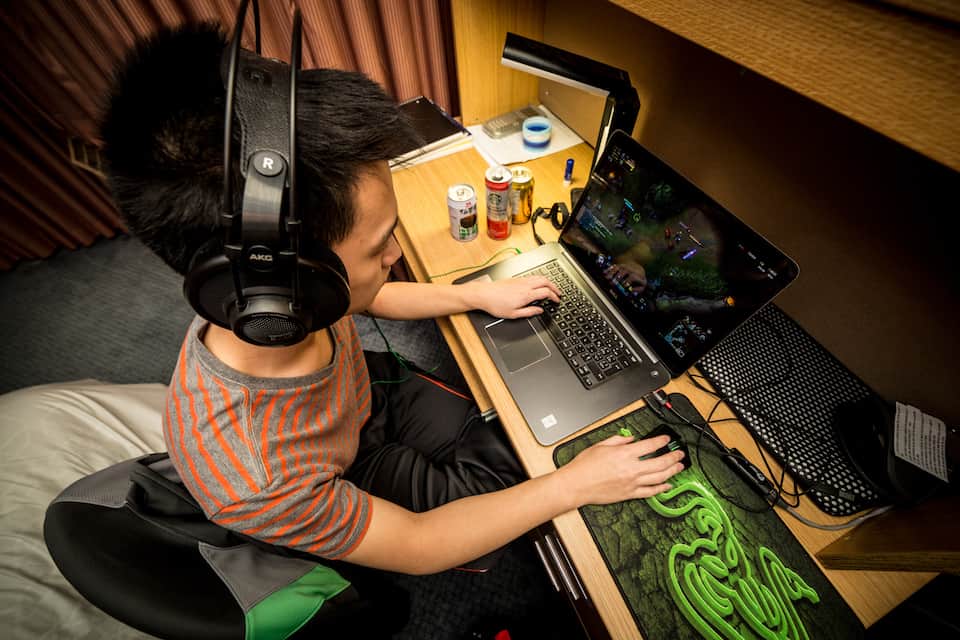There’s no question about it — eSports are exploding worldwide. The League of Legends (LoL) World Championship drew in 36 million unique viewers last year. To put this into perspective, that is nearly a third of the average United States television audience for the Super Bowl.
As a result, eSports are becoming a highly commercialized sector — proven by Amazon’s recent purchase of Twitch, a video game live streaming service that cost them $970 million USD. Despite their rising popularity, eSports are still facing significant resistance from traditional sporting bodies and governing officials. So the debate continues — are eSports actual sports?
Robert Morris University argues in their favour. In 2013, the Chicago college became a pioneer in the eSports industry when they introduced the first official League of Legends Varsity team; they were followed subsequently by four colleges to date, including Columbia College in Missouri. It’s true — they created real athletic scholarships for students who played on their schools’ team, while pursuing a degree.
The Varsity reached out to the University of Toronto League Association (UTLA) team manager, Reiyyan Nizami (Rei), to discuss the matter.
A recent graduate of the life sciences program at U of T, Rei notes the mission of UTLA is to promote the recognition of eSports so that student gamers across Ontario can pursue their unique talent on campus.
This 400 member club is also home to a five player League of Legends team that competes annually in the game’s campus series competition. Their most recent accomplishment was placing fourth across North American colleges in their division last year.
The UTLA League of Legends team is composed entirely of elite ranked University of Toronto undergraduates. They are presently ranked first in the University League of Legends (uLoL) Eastern Conference — ahead of universities such as York, Boston University, and even Harvard — the UTLA is looking to be strong contenders for the North American Campus Series Finals being held in Los Angeles in April.
Despite competitive performances the team receives minimal financial support and no varsity recognition.
The video game playing stigma is still pervasive among parents and peers. As Rei notes, it is difficult to pursue one’s passion and develop a unique talent when there is a lack of recognition for the level of skill and teamwork involved.
With an average of 200 to 300 mechanical actions per minute, critical, quick decision-making, seamless team communication, and strategizing, Rei argues that it is foolish to discount the skill set required to compete.
Despite the undeniable sedentary nature of video games, professional and amateur teams nonetheless practice like any other sports team. They also have coaches and analysts to dissect pivotal plays and execute unique formations to outwit their opponents. Additionally, the UTLA competing team is also incredibly multi-talented, being comprised of several gym enthusiasts and students looking into pursuing medical school.
The main attributes these highly advanced student gamers develop include patience, the ability to balance their academics with serious commitment to the team, mental strength, and quick-decision making, notes Rei. These are all skills that can be transferred to the workplace and are highly desirable to employers, which would allow gamers to continue to excel in the professional world.
Let’s not ignore the earning potential of professional video game playing either. Top performing League of Legends players’ earnings have been estimated to be in the seven figure range, inclusive of team salary, tournament winnings, brand partnerships, and streaming income.
Although the legitimacy of eSports is hotly contested, Rei notes debating whether it is technically a sport or not is futile. It is clear that student players need support to pursue their talent and passion, and millions of people enjoy this game worldwide and consider it a way to destress.
This may sound familiar to your typical varsity athlete; collegiate sports have always offered students the opportunity to enrich their post-secondary education. “eSports aren’t the future — they’re the present,” declared the president of Columbia College’s Varsity League of Legend’s team. It is time for U of T to make note and destigmatize eSports; a legitimate and rapidly growing student activity.


